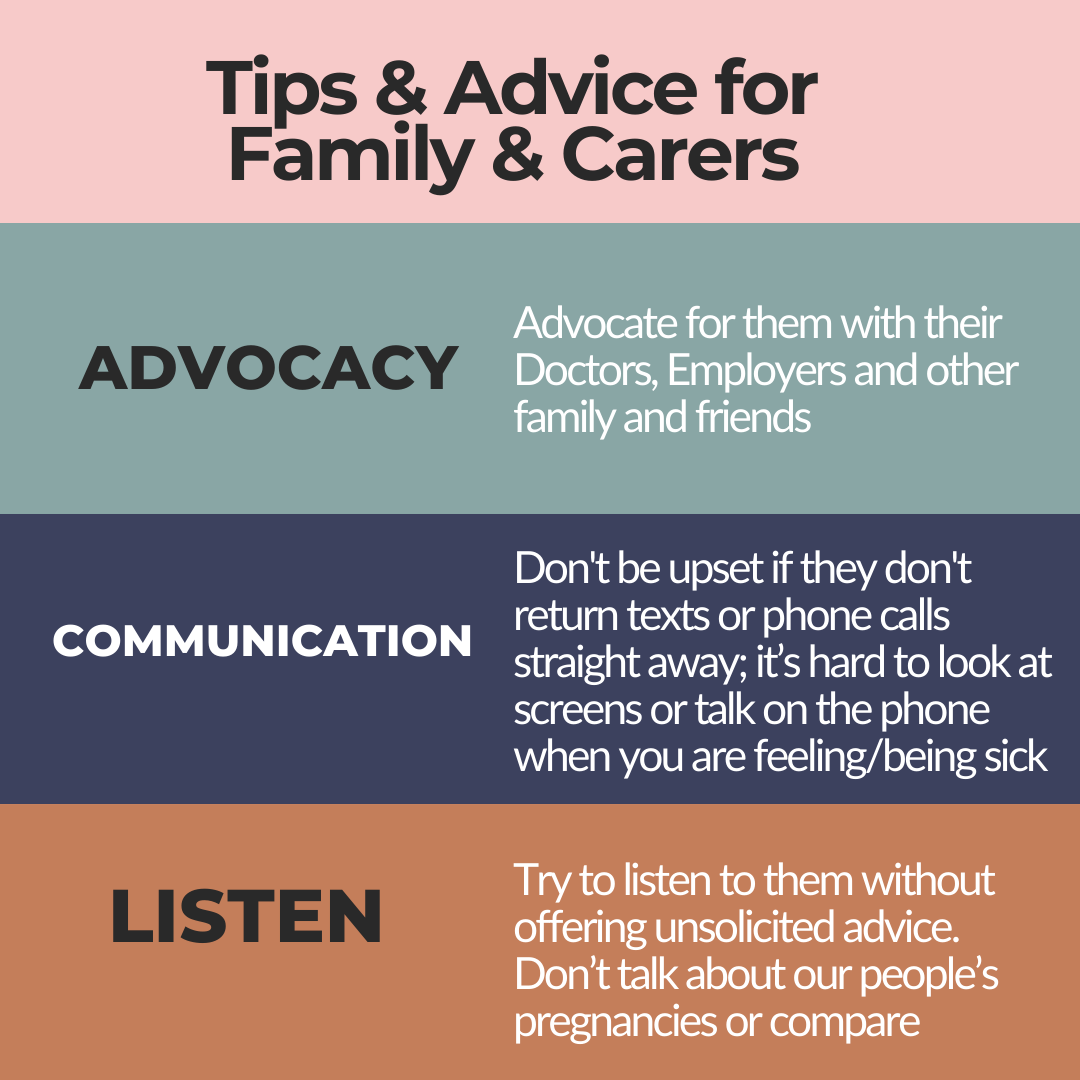Family and carers
This page offers information for those people involved in the care of someone with all degrees of nausea and vomiting in pregnancy (NVP), and the condition on the severe end of the spectrum, hyperemesis gravidarum (HG).
Pregnancy sickness and HG is not just a challenge for the pregnant person but for their loved ones too. It can be absolutely horrendous to watch your partner, daughter, sister or friend suffer so much at what is usually a happy and exciting time.
This page offers information for those people involved in the care of someone with all degrees of nausea and vomiting in pregnancy (NVP), and the condition on the severe end of the spectrum, hyperemesis gravidarum (HG).
HG remains a largely misunderstood condition and those who suffer face a variety of challenges. The majority of women experience some nausea during pregnancy which makes it even harder for those suffering more than ‘normal’ to get their voices heard and receive the proper care, support, and treatment that they so desperately need. Any amount of nausea or sickness which affects their usual routine and restricts food and fluid intake, is beyond the usual expected pregnancy sickness and needs medical attention. Sufferers can become quickly dehydrated which is dangerous for both the baby and the pregnant person.
You may also be responsible for looking for help and treatments/coping strategies so, please do contact us if you are struggling to access appropriate medical support for your loved one.
“If she’s laid up in bed make sure her surroundings are clean and there are sick bowls, tissues etc to hand. Physical contact (even close proximity) with older kids & partner may be difficult & sleeping arrangements may need to be altered for a while.“

Advocacy with Doctors
It can be hard for sufferers to speak up and ask for help and advice when they are feeling so ill.
You may find it helpful to write down notes prior to their appointment. Try thinking about their symptoms, your concerns and any questions you might have. You can find out more about treatment options and how to approach healthcare professionals on our treatments page.
Advocacy with Employers
Your partner may need time off work to cope with their symptoms and this is not unusual for those suffering with pregnancy sickness, even when symptoms are relatively mild.
You can help by familiarising yourself with the employment information on our website and seeking further help if needed from Citizen’s Advice.
If your partner is admitted to hospital you may need to liaise with their employer on their behalf.
Advocacy with Family & Friends
Many people find explaining their symptoms to others difficult and so it can be helpful if their partner/carer speaks on their behalf and explains to family and friends just how real and unpleasant the condition is for them.
Often when faced with illness people try to make helpful suggestions about thinking positively and trying alternative therapies or remedies like ginger biscuits. Generally, comments are not meant to be cruel, in fact they are genuinely trying to be kind, but often this can lead to a greater sense of isolation for the person suffering as suggestions can seem to undermine the severity of their experience. It may be useful to think of some answers for the more common suggestions.
Do you know about our partner/carer support service?
We understand how difficult it can be to see a loved one suffer and that you might need a place to turn to or someone to talk to. You could be eligible to join our partner/carer WhatsApp community where you can speak to people who have been through what you are. Click here to register for the service.
You can also contact our support team if you are struggling to access appropriate medical support for your loved one, need advice on coping strategies or just want to talk to someone who understands.
“PSS helped me understand what my partner was going through and how to advocate for her when she was too unwell to speak. Without their guidance, I honestly don’t know how we would have got through it.”
Josh Willis | HG Father
